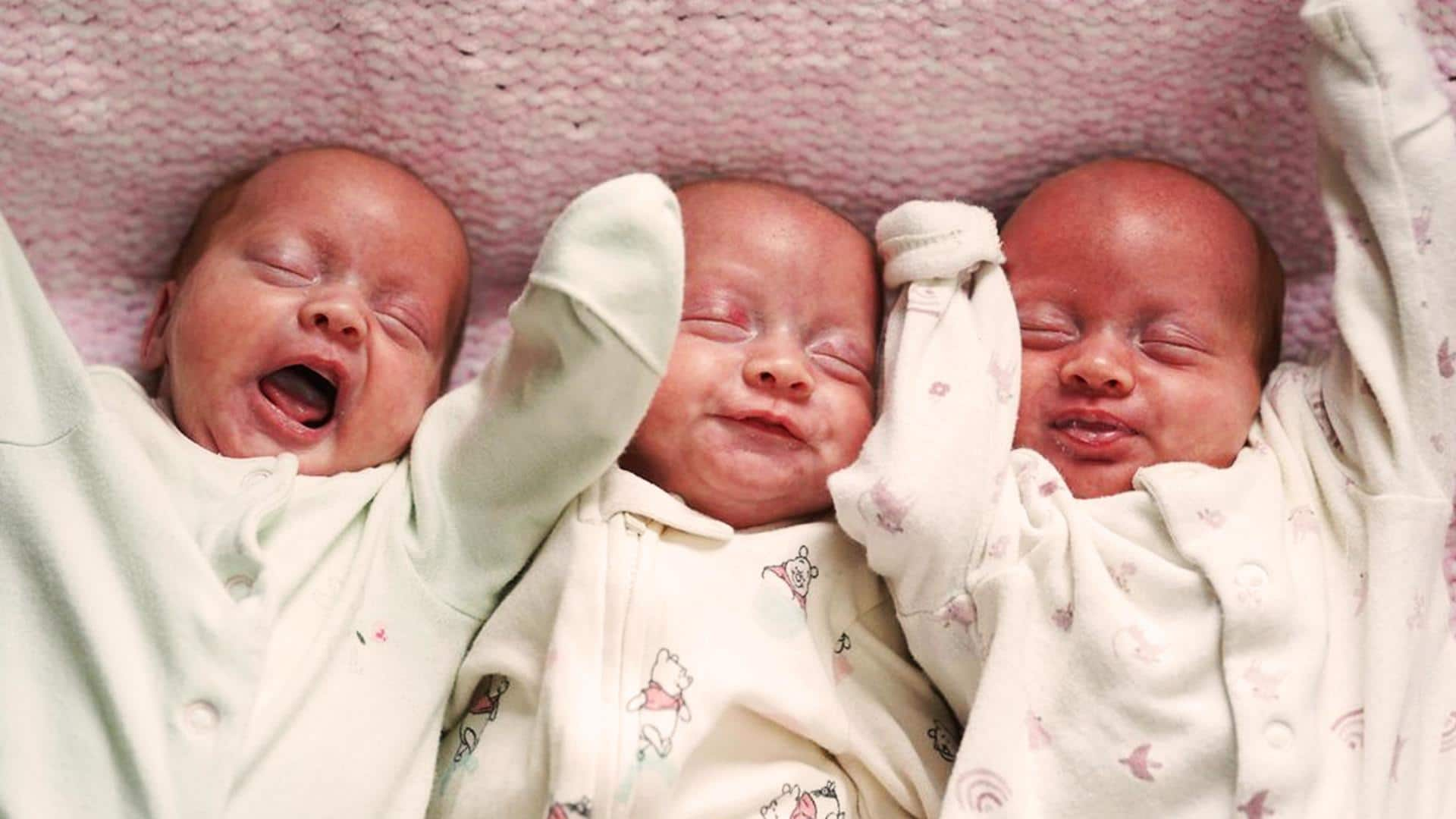
Couple defies 1 in 200 million odds, welcomes identical triplets
What's the story
Sure, identical twins happen fairly often, with a chance of about one in 250 births.
But have you ever wondered how many odds one has to defy to conceive identical triplets? One in 200 million. Yes, you heard that right!
A couple from Yorkshire, Northern England, is over the moon for defying those odds and giving birth to three identical baby girls.
Context
Here's what our expert says
Multiple births during pregnancy are a rare natural phenomenon. Its chances increase after the mother has taken fertility treatment.
The multiple fetus or babies resulting from this are usually fraternal and not genetically identical.
Identical twins or triplets can only happen naturally when a single zygote splits into two or more and each develops into a baby. It's a rare occurrence.
Couple
Triplets were delivered nine weeks prematurely
Mum and dad, Jenni Casper (27) and James Casper (26), have hit the genetic jackpot and have their lives filled with triple the love and endless adventures.
The trio of adorable girls, Harper-Gwen, Marvella, and Evalynn, made their early entrance into the world, weighing 1.27kg, 1.39kg, and 1.36kg.
They were reportedly born nine weeks prematurely at York Hospital on March 31.
Excitement
'Bit surreal' but 'amazing': James
James, a garbage man from Selby, North Yorkshire, described his feelings about the extraordinary circumstances as a "bit surreal" yet "amazing."
"Now we are at home and we have settled in with them, it's a bit surreal. But we are just overwhelmed and they have met their older sisters who are absolutely over the moon and are just so excited," he told Metro.
Special care
After 6 weeks of special care, trio is home
Arriving into the world nine weeks early, the triplets required nearly six weeks of care in the special care baby unit.
However, the wait finally ended, and the elated parents were able to bring their little ones home.
"It's amazing having them home now, it makes us feel more secure knowing that we have got them home," shared the overjoyed father.
Quote
Wristbands with names left on for identification
"For the first two days of them being home, we left their hospital wristbands on that have their names on. Now we have specific seats and bouncing chairs for them," the father told Metro.
Plot twist
Journey filled with surprising plot twists
Initially, the couple was told that they were having twins.
But after the 12-week scan, they were informed that they would actually be having triplets and not twins.
The surprises didn't stop there. During their 20-week scan, they discovered that the triplets were not just any triplets—they were identical!
It was like a jaw-dropping plot twist for them.
Quote
If mixed up, it'd be tough to tell who's who
"Now they are getting a little bit older, they are starting to grow into their features. If me and Jenni had to close our eyes and someone mixed them up, then it would be very difficult to work out who is who," said James.